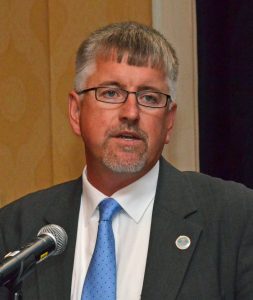 The House version of the farm bill is expected to come to the floor this week, and GROWMARK is among those weighing in with policymakers about priorities for the legislation. The cooperative is particularly looking for support of the Conservation Title, among others.
The House version of the farm bill is expected to come to the floor this week, and GROWMARK is among those weighing in with policymakers about priorities for the legislation. The cooperative is particularly looking for support of the Conservation Title, among others.
“Important to conservation is to make sure that we have program funding to put conservation practices on the land. As an ag retailer, we’re very interested in working hand in glove with farmer as a partner in the watershed,” said Chuck Spencer, GROWMARK’s executive director for government relations, during an interview last week.
Spencer explained that GROWMARK would like to work in partnership with the USDA NRCS as a technical service provider to help farmers develop nutrient management plans, noting language for that already exists in the current House version. Spencer also named the Commodity Title as a priority, along with crop insurance and infrastructure policies.
In this interview, Spencer also discusses how sustainability in agriculture has become an important issue when talking with lawmakers on both the state and federal levels: Interview with Chuck Spencer, GROWMARK












